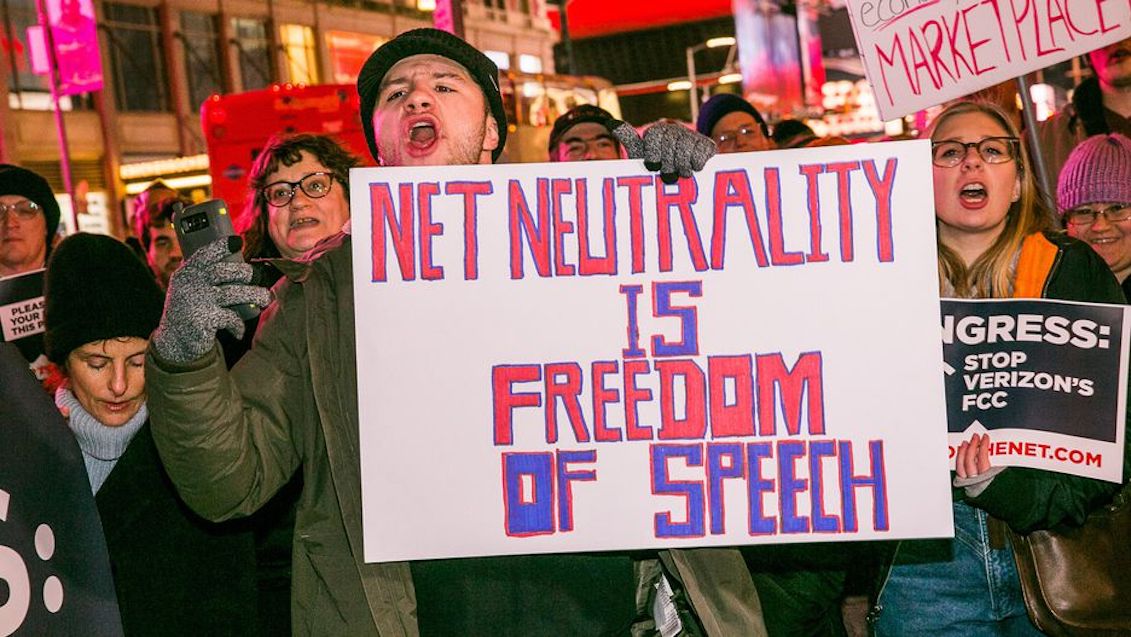
What does “Net Neutrality” mean and how were things before it?
After the FCC announces the termination of the regulation on net neutrality, the whole country wonders how it will affect us.
If you are reading this article on your phone, your computer or your tablet, take two seconds to appreciate the benefit that you have enjoyed for years without being conscious of it.
Day by day, access to Facebook, Twitter, Tumblr, Wikipedia, YouTube or Netflix have been perceived more as a right than as a luxury or a pleasure to be paid for as if it were an expensive meal on a Saturday night.
As the newspaper El País explains, "The internet was not born as a commercial space, but as a decentralized infrastructure that fostered communication between a network of computers scattered around the world."
Initially, the creation of the Internet was considered as another channel of communication, as it was in its time the telephone, radio or television. But the impact of its reach would be evident only years later, with the creation of Mosaic (the first browser), HTML (the programming language that allows creating websites) and the development of programs such as Outlook Express or Netscape that provided a platform to explore the now called "network".
The "community" condition of the Internet established from the beginning that everyone with an IP address, a computer and a port to connect to, had the right to access the growing information platform.
For Vinton Cerf, creator of TCP/IP connection protocols, the extension of the network infrastructure (which would later give rise to the so-called optical fiber) was based on the principle that "all information packets and access points must have the same relevance."
This principle is known as Network Neutrality, a term coined by Tim Wu, a professor at Columbia University, in 2003, and should be seen as "a way for IPs to provide the same service to all users". While there are some exceptions - such as communications from emergency services - these are minimal and strictly limited.
Particularly in the United States, the debate over such a profitable infrastructure has been going on for years. Services such as telegrams or telephonic networks have always been considered "common carriers" under the law, which implies that they are equivalent to public services and it is prohibited to give them preferential treatment.
With the arrival of the Internet in the decade of the 80s, its use was perceived as a commercial good that was obtained through the rudimentary "dial-up modems", and was contemplated by law as "an information service". But years later, at the end of the 90s, the Internet became a common service in American homes, and the development of new platforms led to a dialogue about its regulation.
Then Vice President Al Gore raised the fundamental questions in 1994: "How can a government ensure that the nascent Internet will allow fair competition and access to all customers? How can we make sure that this new market reaches the entire nation? How can we make sure it delivers on the huge promise of education, economic growth, and job creation?"
It was in 2004 when the president of the Federal Communications Commission, Michael Powell, announced a series of non-discriminatory principles entitled "Network Freedom", and that included the right to access content, applications, devices, and service of information.
RELATED CONTENT
Between freedom and the market, the cases came to court.
In 2005, the Madison River case showed the FCC's willingness to comply with its principles, denouncing Madison River Communications, a local telephone company, for blocking Internet service protocols.
Also, in 2007, the nation's largest cable company, Comcast, was discovered blocking networks like BitTorrent by slowing its connection.
At the time, there was no legal way to prevent companies from having their infrastructure in place to control the speed and type of information to which their users had access.
After several attempts by the FCC, and the establishment of freedom of access to information regulations, finally in 2014, a Capital District Court ruled that the FCC could apply the rules of net neutrality without cataloging the providers of information as "Common carriers", which implied a new step towards an equitable negotiation between the right of the consumer and the right to free market.
In response, the FCC (with the support of then President Barack Obama) incorporated the so-called "Title II" to the Net Neutrality Law, which determined that IPs would be common carriers under the communications law of 1934 and prevented suppliers to "make any irrational or unfair discrimination around charges, practices, classifications, regulations or services."
The new FCC decision headed by Ajit Pai, Trump's nominee, throws out years of legal debates that have allowed free access to information and have avoided the abuse of companies, allowing not only extra charges for their services but also granting them the power to regulate access to platforms, data, accounts and even news platforms that the companies could deem inconvenient.











LEAVE A COMMENT: